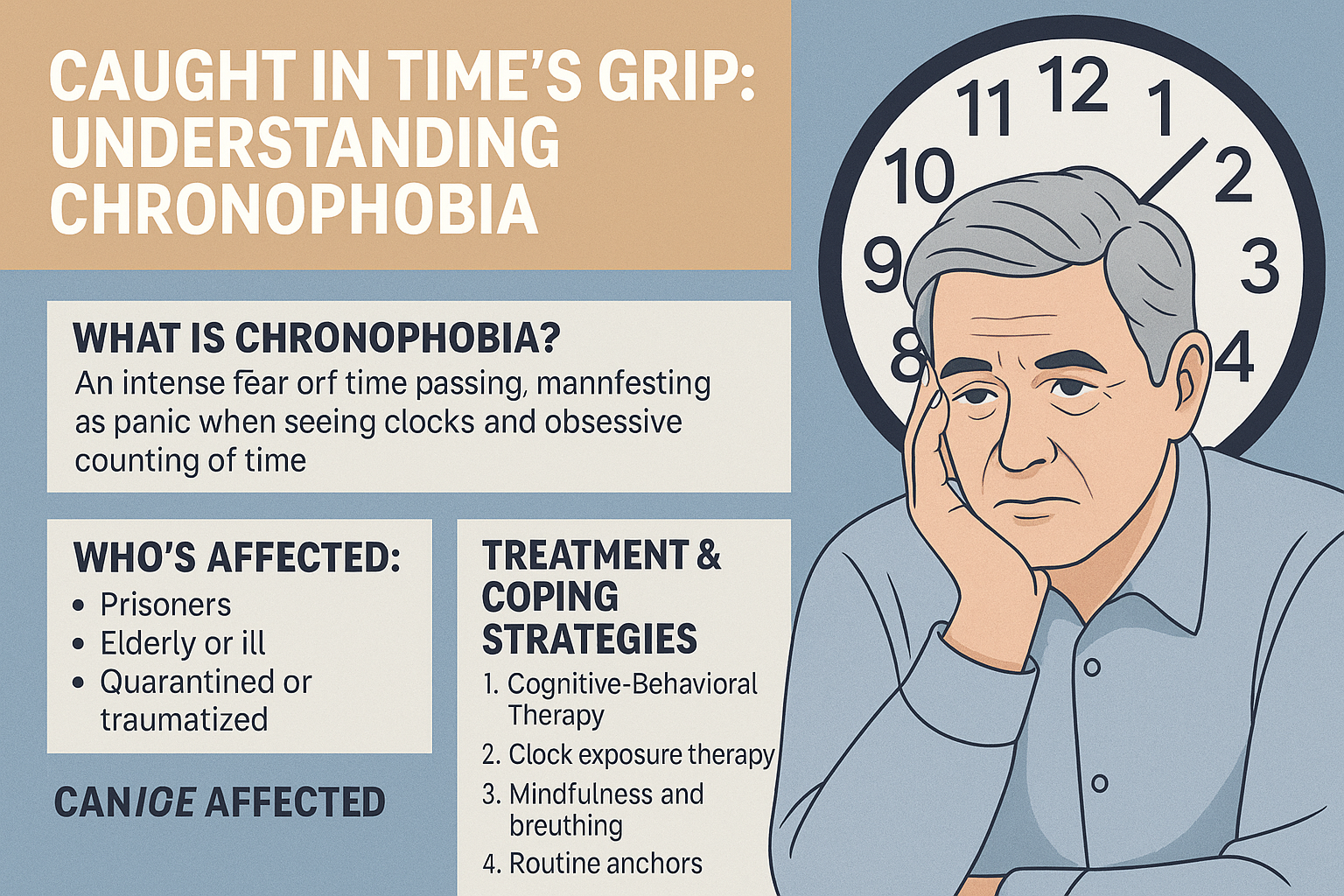Website designed with the B12 website builder. Create your own website today.
Start for free
Caught in Time’s Grip: Understanding Chronophobia ✨
Chronophobia is a specific phobia characterized by an intense fear of time passing. It can manifest as anxiety about the future, dread over the shortness of life, or an overwhelming sense of panic when thinking about schedules, clocks, or aging. For some, it's a fleeting unease—like the Sunday Scaries taken up a notch. For others, it can be a daily, consuming fear that disrupts routines, sleep, and relationships.
To understand how this condition impacts real lives, consider Aisha, a 24-year-old graduate student who began experiencing panic attacks during her final semester of college:
“Every time someone mentioned graduation, I felt my chest tighten. The idea of everything changing, of time moving forward—fast—felt like freefall. I started avoiding my calendar, skipped classes, and couldn’t sleep.”
While Aisha didn’t initially recognize her symptoms as chronophobia, therapy helped her name the condition and take back control over her relationship with time.
Chronophobia can show up in a wide range of populations:
While research is still emerging, chronophobia often links to:
Chronophobia doesn’t always show up with ticking clocks or calendar dread. Symptoms can include:
People experiencing chronophobia may also report physical symptoms like rapid heartbeat, shortness of breath, and dizziness—particularly during moments when time feels especially noticeable.
The good news? Chronophobia is treatable. Here are some evidence-based approaches that have helped many regain their sense of balance:
🧠 Cognitive Behavioral Therapy (CBT): Helps reframe catastrophic thinking patterns related to time and gain a healthier perspective.
📆 Exposure Therapy: Gradual exposure to time-related triggers—like using a planner or attending scheduled events—can desensitize fear.
🧘🏽♂️ Mindfulness & Grounding Techniques: Practices that bring awareness to the present moment can ease anxiety about the future.
💬 Support Groups & Peer Forums: Talking to others with similar fears helps reduce isolation and normalize the experience.
💊 Medication: For some, short-term use of anti-anxiety medication may help while engaging in therapy.
If you or someone you know struggles with chronophobia:
In a culture obsessed with productivity, aging, and “making the most of our time,” it’s no wonder that some develop a fear of time itself. But fear doesn’t have to control the clock. With compassion, clarity, and clinical support, people living with chronophobia can find peace not in rushing time—but in reclaiming it.
If you found this article helpful, consider sharing it or leaving a comment. And remember: every minute you spend understanding yourself better is a minute well spent.